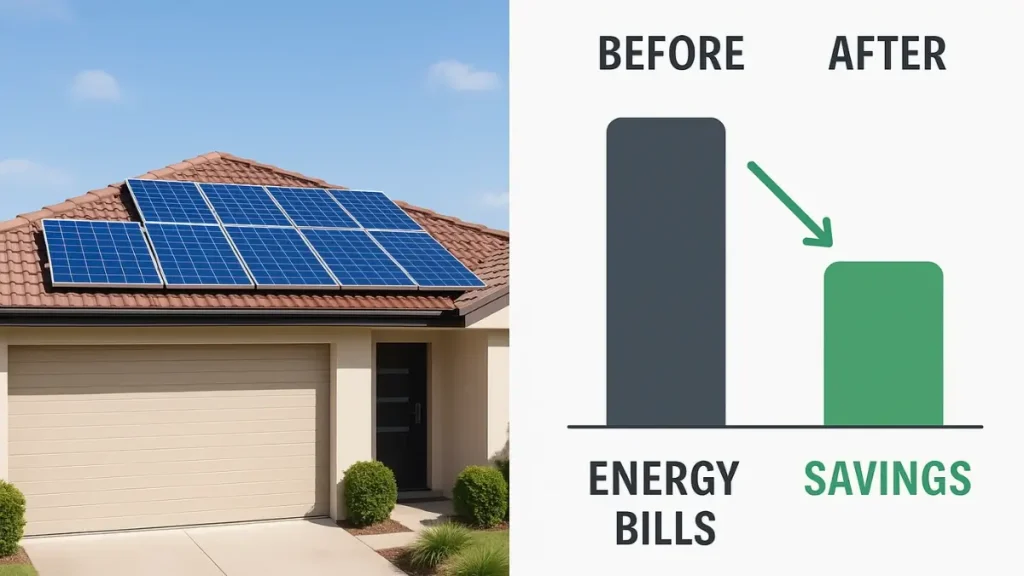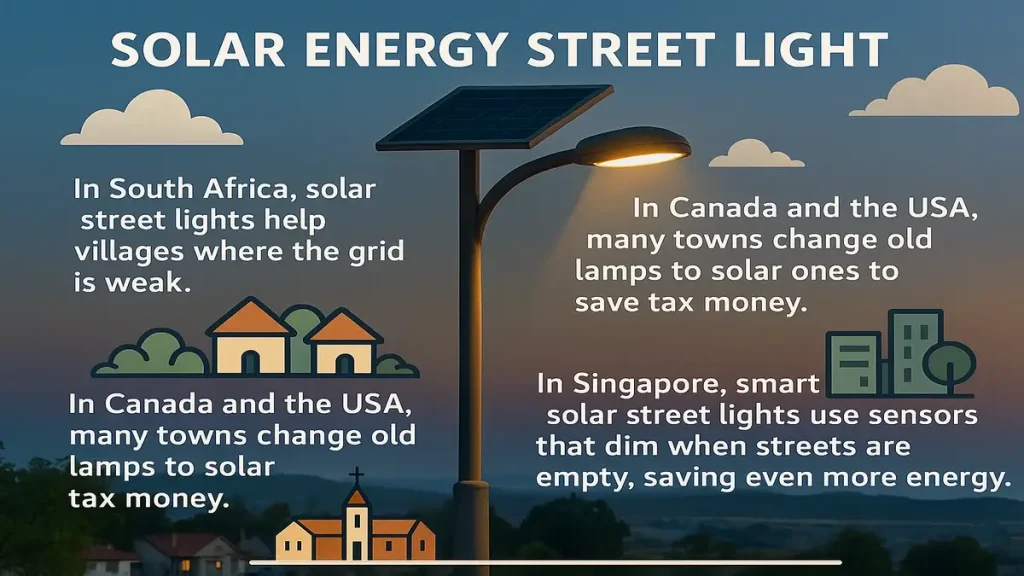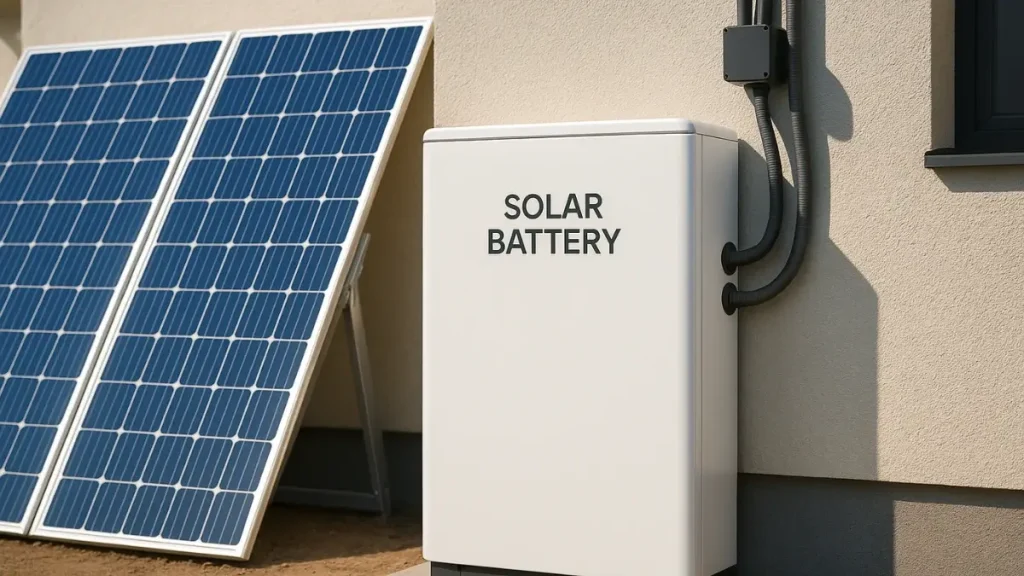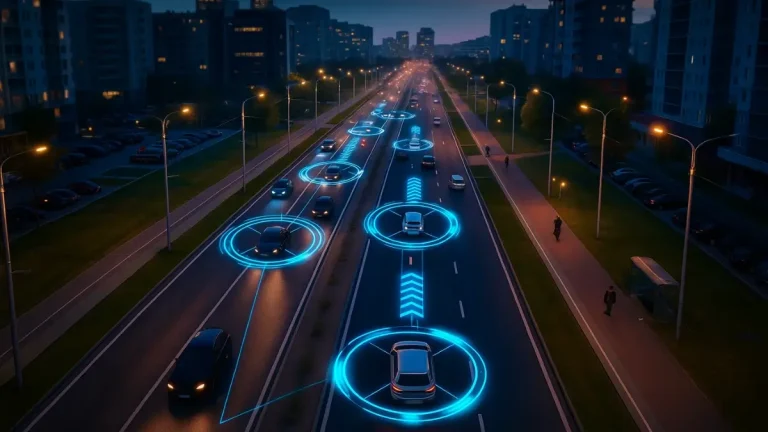Discover how solar energy for companies in the USA, UK, Canada, Ireland & Sweden cut costs, boost savings, and bring green power with grants and tax credits. Around the world, more and more businesses are learning that solar power is not only a green solution, but also a practical way to strengthen their bottom line. By turning empty rooftops, car parks, and warehouse spaces into power plants, companies create their own clean energy, reduce dependence on rising utility prices, and enjoy predictable savings for decades.

The sun has always been more than just a light in the sky. It is the reason plants grow, the reason days begin, and the reason life exists on earth. For generations, people have depended on its warmth and brightness without ever running out of it.Today, the sun does more than give us light and warmth—it gives us power. This power is called solar energy, and it is one of the most hopeful answers to the world’s need for clean and lasting electricity.In many places—the busy cities of the USA, the quiet towns of the UK and Ireland, the wide lands of Canada and Australia, and the growing communities of Singapore, the Netherlands, and South Africa—families are turning to the sun to power their homes, offices, and even whole neighbourhoods.In this article, we will take a simple look at solar energy: what it is, why it matters, the good it brings, the limits it has, and the ways it is already changing lives around the world.
What Is Solar Energy?
In simple words, it is the power we take from the sun’s light and warmth. With tools like solar panels, this light is changed into electricity that can run homes, machines, and even factories. It is clean, safe, and endless. Unlike coal, gas, or oil, the sun does not run out. All we need is the right system to collect what it freely gives.
Advantages of Solar Energy
Why is solar energy becoming popular around the world? Let us look at some of its main benefits.
- Lower Bills – Families in the USA and Canada save money every month by using solar power.
- Good for the Planet – In the UK and the Netherlands, solar helps cut pollution and protect the climate.
- Energy Safety – In places like South Africa and Australia, solar keeps lights on even when the power grid fails.
- Home Value – A house with solar panels sells faster and for more in countries like Ireland.
- Endless Supply – The sun shines every day, and we shall never run out of its power.
Disadvantages of Solar Energy
While the good sides are many, we must also know the disadvantages of solar energy:
- High First Cost – Installing panels costs money at the start, though bills go down later.
- Weather Matters – In cloudy places like the UK and Ireland, solar produces less power.
- Space Needed – Small roofs cannot hold enough panels for big families.
- Storage Costs – Batteries are useful but can be costly to add.
Even with these drawbacks, solar still stands as one of the most hopeful sources of energy for the future.
Solar Energy for Companies
It is not only families who benefit. Businesses across the world are turning to solar energy for companies.
- In the USA, big stores and offices save millions by switching to solar panels.
- In Australia, farmers use solar pumps for irrigation.
- In Singapore, tall office towers run their air systems with solar.
- In the Netherlands and UK, business parks use solar to show they care for the environment.
For companies, solar energy means saving money, building trust with customers, and being ready for future energy needs.
Solar Energy Street Light
One of the most visible uses of solar is the solar energy street light. These lights work with small panels fixed on top of them.
- In South Africa, solar street lights help villages where the grid is weak.
- In Canada and the USA, many towns change old lamps to solar ones to save tax money.
- In Singapore, smart solar street lights use sensors that dim when streets are empty, saving even more energy.
Street lights powered by the sun prove that solar is not just for houses or companies—it also helps whole communities.
Solar Energy Refrigerator
Another clever use is the solar energy refrigerator. This is a fridge that runs on solar panels and sometimes small batteries.
- In Australia, farmers use solar refrigerators in distant farms.
- In Africa, solar fridges keep medicines safe in places with no steady power.
- In the USA and Canada, people use solar-powered fridges for camping and outdoor trips.
From food to medicine, this small invention shows how wide the reach of solar energy can be.
Solar Energy in Different Countries
USA
In states like California, Arizona, and Texas, solar power is growing fast. Tax credits help families and companies set up solar panels at a lower cost.
UK
Even though the UK has cloudy weather, solar still works. More and more townhouses and schools are using it to cut bills.
Canada
Canada’s cool climate makes solar panels work even better. In Ontario and British Columbia, solar is spreading quickly among homes and companies.
Australia
With its endless sunshine, Australia leads the world in rooftop solar. Both city homes and remote farms depend on it.
Netherlands
The Dutch government supports solar with grants, and more homes and businesses are taking part each year.
Ireland
In Ireland, families use solar to cut gas and oil bills. With rising energy costs, solar is becoming a wise choice.
Singapore
In this city of tall buildings, rooftops are used for solar panels, and even floating solar farms are being built on water.
South Africa
Here, solar is more than just a choice—it is a lifeline. Power cuts happen often, so families and schools depend on solar to keep going.

Solar Energy for Companies: A Guide Across Nations
The Choice of Solar Energy for Companies
Solar energy for companies is fast becoming a wise path in many lands. It helpeth reduce cost, bringeth price certainty, and showeth care for the earth. Yet each land hath its own rules, tariffs, and sunlight. Here we study the United States, the United Kingdom, Ireland, and Sweden, so firms may see how solar energy for companies worketh in truth.
United States: The Land of Wide Roofs and Bright Sun
In the United States, solar energy for companies prospereth greatly. The land enjoyeth bright sunshine in many regions, and the government giveth support with a 30% federal tax credit. Many providers, such as Ameresco and Aspen Power, offer rooftop and car-park solar under fair agreements. Business power price standeth around 13 cents per unit, whilst solar on one’s own roof cometh cheaper. With batteries, companies may save further coin and guard against demand charges.
Pros and Cons in the USA
| Pros | Cons |
|---|---|
| Strong 30% federal tax credit plus state help | Rules differ much by state |
| Wide rooftops and steady sunshine | Savings slower in states with lower power price |
| Trusted builders (Ameresco, Aspen Power, DSD) | Demand charges tricky without batteries |
| Long life assets with resale value | Tax credits need careful planning |
United Kingdom: High Prices, Quick Savings
In the United Kingdom, solar energy for companies yieldeth fast returns. Business power prices are 26–30 pence per unit, which is very dear. Here rooftop solar becometh most profitable, for payback cometh quick. The Crown alloweth full expensing, so firms may deduct all cost at once from their taxes. Strong providers like EvoEnergy, Lightsource bp, and Statkraft offer rooftop solar and corporate PPAs for long-term certainty.
Pros and Cons in the UK
| Pros | Cons |
|---|---|
| High prices ensure quick savings | Less sun than southern lands |
| Full expensing allows tax relief | Some roofs need strengthening |
| Many skilled installers available | Grid paperwork may be slow |
| Strong PPA market for large firms | Rates rules must be checked |
Ireland: Green Fields, High Bills
In Ireland, solar energy for companies is a shield against soaring bills. The SEAI grant may give up to €162,600, making systems easier to afford. Power prices here are among the highest in Europe, so even modest solar arrays save greatly. Firms of all sizes—from farms to city factories—embrace solar energy for companies to guard against rising costs and show green care.
Pros and Cons in Ireland
| Pros | Cons |
|---|---|
| SEAI grant up to €162,600 | Cloudy skies cut yield |
| High power costs = quick payback | Rural grid may need upgrades |
| Many approved installers | Paperwork for grants can be long |
| Good for farms and factories | Export tariffs less generous |
Sweden: A Northern Light
In Sweden, solar energy for companies is used as a hedge against market storms. Average power prices are lower than the Isles, yet they are volatile by zone. In southern Sweden, savings are strongest. Leading builders such as Solkompaniet and Svea Solar join panels with storage, bringing peace of mind. For firms wishing to fix their costs, solar energy for companies is a steady guide.
Pros and Cons in Sweden
| Pros | Cons |
|---|---|
| Hedge against volatile markets | Payback slower with lower tariffs |
| Builders like Solkompaniet and Svea Solar | Long dark winters limit yield |
| Strong image of green care | Rules for export complex |
| Growing solar + storage projects | Tax rules differ by sector |

e coin, guard against risk, and shine as a friend of the earth. Verily, solar energy for companies is both a shield and a crown in modern business.
The Future of Solar Energy
Looking forward, the role of solar shall only grow.
- Better Batteries – Cheaper storage will make solar stronger at night.
- Smart Homes – In the USA and Singapore, solar systems are linked with smart devices for better control.
- Green Jobs – From the UK to Canada, solar power is creating jobs in making, installing, and caring for systems.
- Eco Communities – In the Netherlands and Ireland, whole towns are planning to run mainly on solar.
Conclusion
The sun shines on us all, and its gift is endless. Solar energy is more than just a way to cut bills. It is a promise of a cleaner planet, safer power, and brighter homes. Yes, there are disadvantages of solar energy, and yes, the start can be costly. But the good sides far outweigh the bad.
From the farms of Australia, the villages of South Africa, the green fields of Ireland, the modern towers of Singapore, to the busy cities of the USA, UK, Canada, and the Netherlands, solar energy is already changing lives.
It runs homes, helps companies, lights streets, and even cools food in a solar energy refrigerator. The more we use it, the less we depend on fuels that harm the earth.
If you look up at the sun tomorrow, remember this: its light is not only for the day. It may also be the power that lights our future.
Get More Information In USA Department Of Energy.
The Final Word
Thus we see, solar energy for companies bringeth gain in every land:
- In the USA, credits and wide roofs make the case strong.
- In the UK, high bills ensure quick payback.
- In Ireland, rich grants and costly power maketh solar most rewarding.
- In Sweden, solar is a hedge against storms of the market.
For all firms, to place panels upon the roof is to sav
FAQs on Solar Energy for Companies
1. How long doth it take for solar energy for companies to pay back in the UK?
In the UK, where bills are dear, payback for solar energy for companies may come within 4–6 years, faster if batteries be added.
2. What grants support solar energy for companies in Ireland?
The SEAI Non-Domestic Microgen Scheme granteth support for solar energy for companies up to €162,600, making adoption swift for farms and firms.
3. Is solar energy for companies worth it in the USA?
Yea, with the 30% federal tax credit, solar energy for companies in the USA is most profitable, chiefly in sunny states with wide rooftops.
4. Do Swedish firms gain from solar energy for companies?
Though average prices are lower, Swedish firms useth solar energy for companies as a hedge against volatile costs, mostly in southern zones.
5. Which builders provide trusted solar energy for companies?
In the USA, Ameresco and Aspen Power; in the UK, EvoEnergy and Lightsource bp; in Ireland, SEAI-approved installers; in Sweden, Solkompaniet and Svea Solar.
6. What are the main benefits of solar energy for companies?
Solar energy for companies cutteth bills, fixeth long-term prices, lesseneth carbon, and giveth a fair green image before customers and partners.
7. Can solar energy for companies include battery storage?
Aye, many firms add batteries. Solar energy for companies with storage alloweth one to save power by day and use it by night or peak hours.
8. Do small businesses also profit from solar energy for companies?
Verily, solar energy for companies is not for great firms alone. Even small shops, warehouses, and farms gain much through lower bills and grants.

✍️ Author & Writer Introduction
Author: Ahshanur Rahaman Joy
📧 Email: support@ecotreklife.com
🌐 Website: ECO Trek Life
Ahshanur Rahaman Joy is the founder and writer of ECO Trek Life, a platform dedicated to exploring the worlds of technology, healthcare, traveling, and gardening. With a deep curiosity about how innovation and lifestyle connect, Joy creates content that is practical, inspiring, and easy to follow. His mission is to make complex topics simple and engaging so readers can apply knowledge in real life.
At ECO Trek Life, Joy blends research with storytelling. He writes about the latest tech trends shaping our future, practical healthcare and wellness tips, travel guides for curious explorers, and gardening advice that brings people closer to nature. Each article reflects his belief that small changes—whether adopting new technology, improving health habits, or planting a seed—can lead to meaningful growth.
Joy’s passion comes from his personal experiences and a vision to create a more sustainable and informed lifestyle for readers. Through ECO Trek Life, he aims to build a trusted hub where knowledge and inspiration meet. Whether you are a tech enthusiast, a health-conscious individual, a traveler, or a nature lover, Joy’s writing offers something valuable for everyone.




